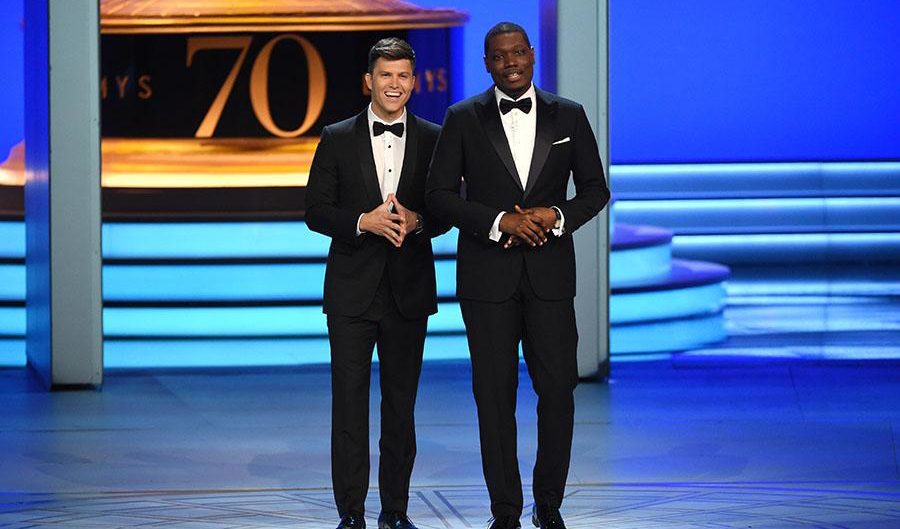The 70th Annual Primetime Emmy Awards were televised September 19th, toting the greatest trophy in Hollywood: diversity. This year, the Emmys boasted the most diverse group of nominees in its 70 year history, yet the winners told another story.
Though the academy did make strides in awarding women in behind-the-scenes positions like directing and writing, only three people of color were handed awards out of the 27 given away on Monday. In stark contrast to last year’s apparent progress, wherein the likes of Sterling K. Brown, Lena Waithe, Riz Ahmed, and shows like Atlanta won big.
The diverse makeup of the nominees was championed throughout the show as a big ticket item. The entire opening number was dedicated to that fact, packed with A-list television stars like Kate McKinnon and Titus Burgess, but the Emmys failed to follow up. Award after award was presented to a white person. The presenters and hosts of the night attempted to make light and point out the apparent sweep of white winners. Presenter James Corden suggested “#EmmySoWhite” should start trending, a joke in reference to Betty White being presented the lifetime achievement award, an unfortunate double entendre.
The biggest winner of the night, The Marvelous Mrs. Maisel, written and directed by Gilmore Girls’ Amy Sherman-Palladino is a cast that is principally white. Though the award for Outstanding Writing in a Comedy Series going to a woman for the second year in a row is certainly noteworthy. Further, this is the first time in 10 years that a show other than Modern Family or Veep takes home the trophy for Outstanding Comedy Series, with Maisel taking home that and every other award given out for comedy, save Bill Hader and Henry Winkler’s wins for acting in HBO’s Barry.
This year was no new trend, however. Hollywood has been largely white and male for decades. Women and people of color continue to be represented poorly in television and film. In TV last year, only 40% of all speaking roles were female. Women comprised 27% of all creators, producers, directors, and writers. Compare that to the U.S. population, of which women comprise 51%. Further, people of color people make up 28.3% of characters with dialogue.
A study done by the University of Southern California found that over half of the over 400 television shows and films they analyzed had no speaking Asian character, and more than one fifth had no speaking black character. Just two percent of characters examined were identified as a member of the LGBT+ community.
People have been saying for years that Hollywood must become more inclusive of POC, members of the LGBT+ community, women, and all those that intersect these categories and exist under the radar of the white-dominated patriarchy.
At the end of the night, the only people of color going home with a statue with their name on it were Regina King (Seven Seconds), Thandie Newton (Westworld), and RuPaul (RuPaul’s Drag Race).
Hollywood must do better. Invisibility in broadcast is a sickness that has existed all too long. People must be seen, and they deserve to be rewarded.
It seems as though the pre-taped segment that rolled halfway through the Broadcast, in which host Michael Che gave “Reparations Emmys” to substantial black actors that were denied emmys during their career is a little more apt than first thought.
